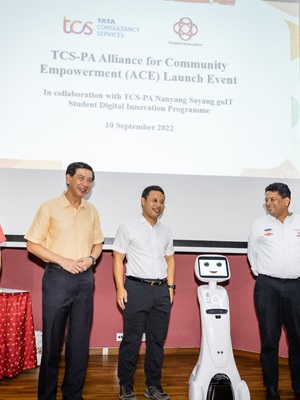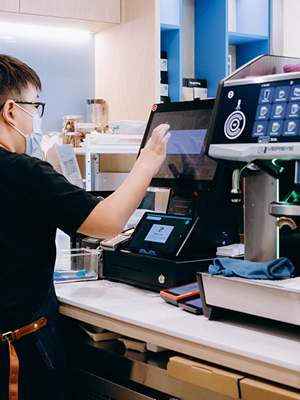Menstrual hygiene remains a taboo in numerous regions, resulting in women lacking secure, available, and sanitary facilities for proper washing and sanitation. Globally, approximately 2.5 billion individuals do not have access to improved sanitation, with a significant portion being women (UN).
According to the National Family Health Survey (NFHS-4), only 12% of Indian women are able to make use of sanitary aids due to which they have become a carrier of infections and face health problems. The Universal Declaration of Human Rights Article 25 emphasises the right to adequate living standards, including health and well-being for all. However, in India, this right is violated, especially concerning menstrual sanitation and because of which, women have to endure adverse conditions.
In India women face significant challenges during their menstrual cycles, primarily due to the limited availability of safe and hygienic spaces in rural areas and small towns. Due to scarcity of toilets, women lack a secure environment for proper menstrual hygiene. Men, who often make key decisions, consider menstrual products as an unnecessary expense, forcing women to live in unsanitary conditions and exposing them to numerous infections. The prevalence of open defecation further exacerbates these issues, particularly impacting women who are at risk of public harassment. To avoid encounters with men, women often resort to defecating in the early morning or after sunset in fields. Those below the poverty line find these products unaffordable. Additionally women are reluctant to openly discuss their concerns and sanitation needs. Moreover, all existing sanitation laws often overlook the specific needs of women. While some laws mention separate toilets for men and women, this provision is rare. The management of sanitation which is overseen by local leaders, tends to neglect women's specific challenges. In many cases, sanitation regulations adopt a neutral approach that fails to address the requirements of women in ensuring proper sanitation.
Adequate hygiene and sanitation is not solely a government or a societal responsibility ; it is also due to lack of awareness and illiteracy. According to data from the Centre for Catalyzing Change (C3), nearly 23% of girls in Indian schools drop out once they begin menstruating due to insufficient access to sanitation facilities, information, and menstrual products. Within the nation, diverse leaders and stakeholders approach this issue from various perspectives. Alarmingly, many States and Union Territories in India don't consider women menstrual hygiene a vital topic and just choose to ignore it like other minor issues. Since, women in rural area don't form majority vote hence
The Supreme Court of India, which is an independent and highest judicial body, had asked all the States and Union Territories to form a uniform national policy on menstrual hygiene for girls studying in schools. They were given a period of 4-6 weeks to complete the scheme. The Court had also added that there will be legal implications, if the States and Union Territories did not take action. The Health Ministry was appointed by the Supreme Court to oversee this process and monitor progress. The Supreme Court even suggested that the State and Union Territory should provide free, good quality and affordable sanitary pads for girls in classes 6 to 12. They also proposed proper disposal systems for used pads in schools with girls in upper-primary/Secondary/Higher Secondary. Unfortunately due to political agendas related to electoral votes (girls in primary/secondary or higher school do not cast votes nor form a majority or influence election results in any way), many of the State and Union Territories did not submit their response nor consolidate the policy. Sadly, only the Supreme Court took this situation with highest priority and wanted the State and Union Territory to take immediate action for the convenience and betterment of women and girls in the country. The States and Union Territories on the other side did not consider this as their primary issue.
Contrastingly, in states where there is high literacy and women participate in the workforce, there is much more advancement and progress related to menstrual hygiene. These States have their own schemes that assist and support women and girls of the country that are experiencing hardship. For instance Maharashtra’s ‘Asmita Yojana’, Rajasthan’s ‘Udaan’, Andhra Pradesh’s ‘Swechcha’, Kerala’s ‘She Pad’, Odisha’s ‘Khusi’, Chhattisgarh’s ‘Suchita’, and Sikkim’s ‘Bahini’ all have provisions to distribute subsidised or free sanitary napkins to adolescent girls. The governments of Kerala and Karnataka have been providing menstrual cups as a sustainable option instead of sanitary napkins. While these initiatives have positively impacted menstrual health and hygiene across the country, significant challenges still persist in ensuring equal access and opportunities. The initiatives launched by certain states within the country demonstrate their dedication to supporting women and young girls. This reflects a proactive approach in addressing the concerns and hardships faced due to inadequate support and facilities provided, not just by the state but also at the national level.
Human rights are those that are inherent to all human beings, regardless of race, sex, nationality, ethnicity, language, or religion. Human rights are needed to protect and preserve one's humanity, to ensure that every individual can live a life of dignity (UN). Human rights are alienable and universal. They need legal safeguards to secure their recognition and protection, without this these rights might be overlooked or violated among all communities.
Chhattisgarh being a new state in central India, was separated from Madhya Pradesh in 2000. It is a poorly developed area, with an estimated 43% of the population living below the poverty line. The region struggled with inadequate access to clean water and sanitation facilities, leading to the pervasive practice of open defecation in numerous villages. The implementation of a national rural roads program inadvertently eliminated the fields serving as open toilets, intensifying the challenge for women of finding suitable places for sanitation.
With this change, the women of Chhattisgarh refused to accept these circumstances as their destiny. In response, the local NGO, Association for Stimulating Know-how (ASA), aimed to improve the village's sanitation conditions, focusing particularly on women's health and access to sanitation facilities. With approximately US$50,000 in donations, ASA initiated a pilot project that actively engaged women as key participants in the planning and execution stages. By involving nearly half of the population, this strategy ensured that the project benefited from the insights and efforts of women, addressing their specific needs and concerns empowering them to manage local environmental sanitary conditions effectively.
ASA's pilot project was a success in addressing a sensitive issue in India. Beyond constructing household latrines, the initiative encompassed various achievements, such as community-led maintenance of water sources, establishment of a sustainable sanitary mart, and the empowerment of Village Sanitation Committees. These committees were strengthened to oversee solid waste disposal, manage wastewater, maintain drains, and disinfect stagnant water in villages. To foster community involvement and sustainability, women in self-help groups were encouraged to access loans for constructing latrines and actively engaged in awareness-raising activities. The gender-inclusive approach brought significant credibility to these committees, resulting in their recognition as legal entities by the government. This local initiative not only substantially enhanced living conditions but also set a valuable precedent in protecting human rights at a local level, serving as a model for other states in India.
Posted 27/08/2024





